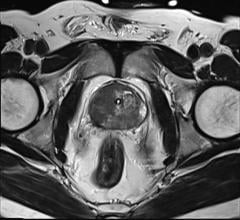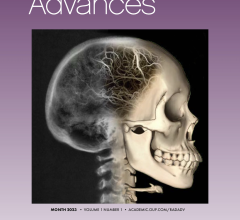April 3, 2014 — A new paper published by a joint U.S. and Canadian team in PLOS One suggests SPECT (single-photon emission computed tomography) is useful in both identifying and guiding treatment for those with traumatic brain injury (TBI).
Nick Bell, former Oakland Raider running back, suffered for many years with depression, pain, irritability and isolation as the result of repetitive traumatic brain injuries as a football player. Seeking treatment, he received a brain SPECT scan, which shows images of blood flow to the brain, as part of his care.
"Brain SPECT imaging helped me see the physical damage to my brain in a way which overwhelmingly explained my past behaviors and emotional issues. The SPECT scan motivated me to be aggressive with my treatment, which has made a wonderful difference for both me and my family," said Bell.
Using standardized search criteria, the study examined the National Library of Medicine's largest research databases to identify 1,600 papers on SPECT and TBI from the world literature over the past 30 years. Of these, 71 studies, involving 2,634 patients, were considered of the highest quality and were included in the review. Nineteen studies followed TBI patients over time and five looked at the effects of treatment interventions.
The findings of the systematic review included that 1) SPECT is more sensitive compared to standard anatomical CT and MRI (magnetic resonance imaging) in detecting brain abnormalities in TBI; 2) SPECT correlates with psychological and neurological outcomes; and 3) SPECT can be used to evaluate treatment interventions. SPECT scans showed abnormalities not seen on MRI and CT in all 10 of the studies that investigated this question (100 percent).
It was found that a normal SPECT study right after an injury is highly predictive of a good clinical outcome for patients, but an abnormal scan right after an injury was not highly predictive of the ultimate outcome (59 percent), as the brain has many healing mechanisms. But if the second scan three months later was also abnormal, the scan was highly predictive of poor outcome.
"The bottom line is if a brain SPECT is normal after TBI, patients do well but we need to see at least two abnormal scans over time to see if they do poorly," says psychiatrist and SPECT expert Daniel Amen, one of the co-authors of the paper. "These important findings can have important implications for diagnosis and brain rehabilitation in persons with TBI."
For more information: www.amenclinics.com/dr-amen/latest-news/item/functional-brain-imaging-c…


 April 17, 2024
April 17, 2024 








